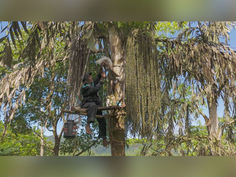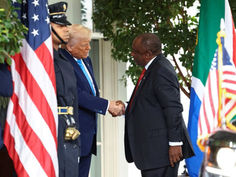The Role of Indigenous Leaders in Climate Change Advocacy
- Rahmani Khoshnaw

- May 2, 2025
- 3 min read
Khoshnaw Rahmani, JadeTimes Staff
K. Rahmani is a Jadetimes news reporter covering Politics.

Before the world had words like "carbon footprint" or "climate crisis," there were guardians of the land—communities that treated the earth not as a resource to exploit, but as a relative to protect. Today, as global leaders scramble for solutions, Indigenous voices rise as a reminder: what the earth needs isn't invention, but rediscovery.
Indigenous leaders are more than advocates—they’re the frontlines of a battle that isn’t just about environmental survival, but cultural preservation. As governments and industries debate policies in air-conditioned rooms, Indigenous communities are living the climate crisis daily: their lands flooded, their forests burned, their traditions threatened.
This article explores the unshakable power of Indigenous leadership, showing how centuries-old wisdom is reshaping modern climate advocacy and offering solutions rooted in respect, resilience, and revolution.
The Vital Contributions of Indigenous Knowledge
Indigenous leaders approach climate change not as a scientific puzzle, but as a lived reality intertwined with identity, history, and survival. Their traditional ecological knowledge (TEK)—passed down through generations—is not just wisdom; it’s a blueprint for sustainability.
1. Reforestation and Carbon Sequestration
While governments pour billions into climate technology, Indigenous practices like controlled burns and natural reforestation quietly outperform high-tech experiments. These methods restore ecosystems while capturing carbon naturally—methods Indigenous communities have been perfecting for centuries.
2. Water Conservation and Flood Prevention
From building sacred wetlands to preserving underground aquifers, Indigenous practices ensure water remains abundant for future generations. In regions like the Amazon and Pacific Islands, these methods are literally keeping communities afloat as rising sea levels and droughts strike simultaneously.
3. Protecting Biodiversity
Indigenous-managed lands hold 80% of the world’s remaining biodiversity. Their cultural traditions prioritize balance between human needs and nature, fostering ecosystems that thrive rather than deplete.
Indigenous Activism on a Global Stage
For decades, Indigenous leaders were dismissed by global powers—seen as relics of the past rather than champions of the future. But as the planet veers toward environmental collapse, Indigenous advocates have taken their fight to the world stage.
1. From the Rainforests to the U.N.
At major climate summits like COP27, Indigenous voices are no longer whispering—they’re shouting. Leaders like Nemonte Nenquimo of the Waoran in Ecuador and Hindou Oumarou Ibrahim of Chad have forced global policymakers to confront the inequities of climate change and championed the integration of Indigenous knowledge into international climate strategies.
2. Land Defense Movements
From halting deforestation in the Amazon to blocking oil pipelines in North America, Indigenous movements have become powerful grassroots forces. These efforts not only protect sacred land but also safeguard carbon sinks critical to the planet’s survival.
Challenges in Climate Change Advocacy
Despite their vital contributions, Indigenous leaders face monumental obstacles. The fight for the planet is also a fight against exploitation, erasure, and systemic marginalization.
1. Exclusion from Decision-Making
Global climate policies often exclude Indigenous voices, framing solutions in terms of economic growth rather than cultural survival. Indigenous perspectives rarely make it beyond symbolic inclusion in international negotiations.
2. Land Rights Under Siege
Industries backed by governments often prioritize profits over Indigenous land rights, escalating conflicts. From illegal logging to forced relocation, communities are often sacrificed in the name of “development.”
This isn’t a negotiation. Indigenous leaders aren’t asking for a seat at the table—they’re fighting to protect the planet that sustains us all. Their knowledge is not just wisdom; it’s survival. And as the climate crisis accelerates, their voices aren’t optional—they’re indispensable.
For centuries, their expertise was dismissed. Their warnings ignored. But now, as the forests burn and the oceans rise, it’s clear: ignoring them was humanity’s greatest mistake. The solutions to the crisis have existed all along, and Indigenous leaders are the keepers of those solutions.
The real question isn’t whether the world will listen—it’s whether it will act before there’s nothing left to save.











































Comments